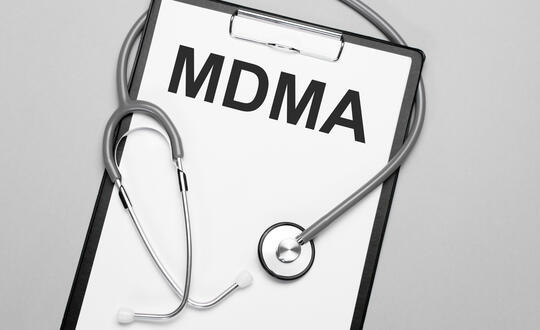The Re-Emergence of Ecstasy – But Not at the Club
Jul 08 2021
In August of 2017, the FDA granted breakthrough therapy designation to MDMA (a.k.a., Ecstasy/Molly) for the treatment of Post-Traumatic Stress Disorder (PTSD). Just recently the results of the first Phase 3 clinical trial were released in the journal Nature Medicine.
MDMA, a synthetic drug that alters mood and perception, was first synthesized in 1912 by Merck. By the early 1980s, it became popular at the nightclub/dance rave scene because it acts as both a stimulant and a psychedelic and produces an energetic effect. Hence, the name Ecstasy. After decades of criminalization, psychedelic drugs, including MDMA, are on the brink of reappearing as potential pharmacological treatment for mental health disorders and addiction. Dr. Rick Doblin and his team at the Multidisciplinary Association for Psychedelic Studies (MAPS) in California have led the way in psychedelic research, with one of their goals focusing on MDMA as a medicine to treat PTSD. According to MAPS, “an estimated 7 percent of the U.S. population will experience PTSD at some point in their life, and as many as 13 percent of combat veterans have the condition. In 2018, the U.S. Department of Veterans Affairs spent $17 billion on disability payments for over one million veterans with PTSD.”
The results of their Phase 3 trial demonstrated that 67% of participants who received three MDMA-assisted therapy sessions for severe PTSD no longer qualified for a PTSD diagnosis at the end of the study, compared to only 32% from the placebo therapy sessions. In addition, close to 90% of those in the MDMA-assisted therapy sessions reported a significant reduction in symptoms. The study found no relationship between onset or duration of PTSD and treatment efficacy.
These findings come just weeks after a New England Journal of Medicine study (noted in a previous blog) found psilocybin to be beneficial in the treatment of depression. Many of the top universities are currently in the process of setting up psychedelic research centers, and many investors are spending millions in psychedelic medicine stocks. In fact, one forecast estimates that the market for psychedelic drugs could reach 10.75 billion by 2027. MAPS Founder and Executive Director, Rick Doblin warns, however, “It’s not the drug – it’s the therapy enhanced by the drug.”
In order to be approved by the FDA, the MDMA-assisted psychotherapy has to replicate efficacy in a second, late-stage clinical trial which is already underway. Currently, MDMA is still a Schedule 1 drug which is defined as having “no currently accepted medical use.” Approval may come as early as 2023.